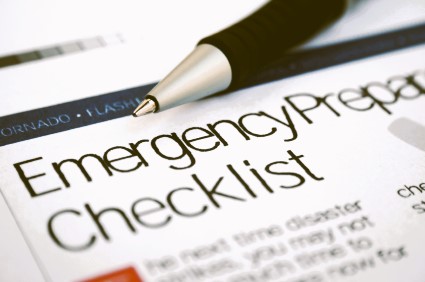Life is unpredictable, and unexpected emergencies or setbacks can strike when we least expect them. Whether it’s a natural disaster, a personal crisis, a financial downturn, or a business setback, having a well-thought-out contingency plan can make all the difference between chaos and stability. In this blog article, we will explore the importance of creating contingency plans for emergencies or setbacks and provide a step-by-step guide on how to develop effective contingency plans to ensure resilience and preparedness in the face of adversity.
Why Contingency Plans Matter
Contingency plans are essential because they allow individuals, families, businesses, and organizations to respond swiftly and efficiently to unforeseen events. They provide a framework for making quick decisions and taking appropriate actions, thereby reducing the negative impact of emergencies or setbacks. A well-crafted contingency plan can:
Minimize Disruptions: Contingency plans help mitigate the impact of unexpected events, allowing businesses to maintain operations and individuals to sustain their daily routines.
Ensure Safety and Well-being: Personal contingency plans ensure the safety of loved ones and yourself, while business contingency plans protect employees and assets.
Maintain Trust and Confidence: For businesses, having a contingency plan in place fosters trust among clients, customers, and stakeholders, assuring them that the organization is prepared for the worst.
Facilitate Resource Allocation: Contingency plans allow for efficient allocation of resources during emergencies, preventing wastage and ensuring essential needs are met.
Creating Your Contingency Plan
Identify Potential Risks: Start by listing potential emergencies or setbacks that could affect you or your organization. These may include natural disasters, economic downturns, supply chain disruptions, data breaches, or health crises.
Assess Impact and Probability: Rank the identified risks based on their potential impact and probability of occurrence. Focus on the high-impact, high-probability events as the priority for your contingency plan.
Set Clear Objectives: Define specific goals you want to achieve with your contingency plan. For instance, ensuring the safety of your family, maintaining business continuity, or safeguarding critical data.
Develop Response Strategies: Create detailed strategies for each identified risk, outlining step-by-step actions to be taken. Ensure that responsibilities are clearly assigned, and everyone involved understands their roles.
Build Communication Protocols: Effective communication is crucial during emergencies. Establish communication channels and protocols to keep everyone informed and coordinated.
Test and Revise Regularly: A contingency plan is only effective if it works in practice. Conduct drills and simulations periodically to identify weaknesses and areas for improvement. Revise the plan as needed to stay relevant and up-to-date.
Maintain Documentation: Keep your contingency plan well-documented and accessible to relevant stakeholders. Regularly update contact information, procedures, and any other relevant details.
Review Insurance and Legal Matters: Ensure you have appropriate insurance coverage and comply with any legal requirements related to emergencies or setbacks.
Conclusion
Creating contingency plans for emergencies or setbacks is an essential part of being prepared and resilient in an unpredictable world. It provides the assurance of knowing that you can effectively handle unforeseen events and emerge stronger on the other side. By identifying risks, developing response strategies, and maintaining clear communication, you can build robust contingency plans that protect your loved ones, your business, and your future. Remember, preparation is the key to weathering any storm that life may throw your way.
Who we are: Funded.com is a platform that is A+ BBB accredited over 10+ years. Access our network of Angel Investors, Venture Capital or Lenders. Let us professionally write your Business Plan.





 Rss Feed
Rss Feed


